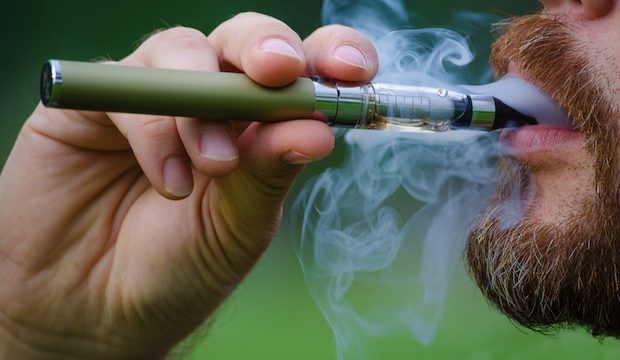North Dakota Anti-Tobacco Agency Fighting Vaping The "Endgame For Tobacco"

On the 2008 ballot North Dakotans voted to create the Center for Tobacco Prevention and Control Policy in our state government, funded by the settlement from the classaction lawsuit against the tobacco industry. We can have a debate about whether or not it’s wise to have anti-tobacco activism enshrined in our state government (the Center is better known to the public as BreatheND), but why is an anti-tobacco state agency spending time and money fighting a product that could lead a lot of people away from tobacco?
Isn’t tobacco prevention right in their title?
Yet, the Center is already fighting a (legally dubious) war on vaping, even as vaping is proven to be a much healthier alternative to smoking:
Vaping is safer than smoking and could lead to the demise of the traditional cigarette, Public Health England (PHE) has said in the first official recognition that e-cigarettes are less damaging to health than smoking tobacco.
The health body concluded that, on “the best estimate so far”, e-cigarettes are about 95% less harmful than tobacco cigarettes and could one day be dispensed as a licensed medicine in an alternative to anti-smoking products such as patches.
While stressing that e-cigarettes are not free from risk, PHE now believes that e-cigarettes “have the potential to make a significant contribution to the endgame for tobacco”.
The message was backed by the government’s chief medical officer, Dame Sally Davies, who nevertheless cautioned that “there continues to be a lack of evidence on the long-term use of e-cigarettes”. She said they should only be used as a means to help smokers quit.
Note here that nobody is arguing that vaping is good for you. It’s not akin to, say, taking your Flintstone vitamins. But vaping certainly seems to be much, much healthier choice than pretty much every form of traditional tobacco use as this chart from The Guardian article indicates:
I don’t think there’s any question that the world would be a much healthier place if every smoker switched to vaping. Yet the anti-tobacco zealots are working to make it harder for people who are currently smoking to choose vaping.
There are motivations present in that decision which deserve scrutiny, I think. Some of it could just be rabid disdain from overbearing activists for anything that even looks like smoking, but there is some calculation here too. After all, if people stop using tobacco in significant numbers, what are people who have made a career out of fighting tobacco use going to do?





